Gone are the days when it was acceptable for teachers to lecture from the front of a classroom. In today’s modern classroom, rows of desks and passive students are a thing of the past. Education is immersive and two-way, completely transforming the part that is played by the teacher.
At a school like Scots – where experiential learning environments are purposefully developed – the teacher’s role is fluid and can change based on the stage of experiential learning, student learning styles, subject area and the teacher’s preference. Here are four common roles that the teacher plays in experiential learning.
Teacher as facilitator
Sadly, most classrooms still involve the teacher as the authority with students as passive recipients. However, teachers who are well-versed in experiential education act as facilitators. This means putting the student at the centre and involving them in the decision making and problem solving. The teacher as facilitator also means facilitating the transfer of knowledge to the real world. In this role, teachers adopt a warm and affirming style to draw out learners’ interests and intrinsic motivation. This approach is helpful to develop strong relationships with students. Typical activities include brainstorming and group discussions.
Teacher as subject expert
As subject experts, teachers help learners to organise and connect their reflections to the subject knowledge base. They often teach by example, modelling and encouraging critical thinking. To be able to do this competently demands teachers learn continuously. The need to constantly develop themselves is paramount to their students’ improved achievements. Teachers should be aware of changes in their field and not wait for formal, top-down training to advance their knowledge and skills. To support this, schools must recognise that teachers need time in their schedules to be innovative and to research in order to continue to grow. This will naturally develop teachers who are subject experts and passionate advocates in their field.
Teacher as standard setter/evaluator
The standard setter or evaluator role is crucial for subject areas with precise performance requirements. In this role, teachers will often adopt an objective, results-oriented style to help learners evaluate their learning. This approach fosters the development of thinking, deciding and acting learning styles. Typical learning activities include case studies and simulations.
Teacher as coach
The role of coach is a collaborative and encouraging style of teaching that helps learners apply knowledge to achieve their goals. With this approach, teachers often work one-on-one to personalise the experience based on the student’s own life context. The role of coach involves providing feedback wherever possible and using instructional techniques such as fieldwork and applied projects.
If experiential education is defined as ‘learning by doing’ then the learning experiences designed must support an immersive experience. The student plays an active role in the experience, followed by reflection as a method for processing, understanding and making sense of the experience. Although no longer front and centre, the teacher plays a more crucial role than ever before to orchestrate learning in their classroom.
Founded around the concept of experiential learning, Glengarry will provide your son with all the benefits of outdoor education. Download your copy of the Glengarry handbook to learn more.






